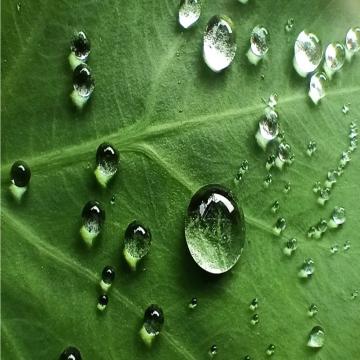Hungary - Eötvös University (2010)
- Researchers: Dr. Gábor Horváth and colleagues.
- The study concluded that water droplets on smooth leaves do not focus sunlight sufficiently to cause significant leaf burn.
- Source: New Phytologist journal.
United Kingdom - University of Oxford (2008)
- Researchers: Dr. Kevin McKenzie and team.
- The study used computer models to simulate the effect of water droplets on leaf surfaces and found that the risk of leaf burn from water droplets is minimal in most practical gardening scenarios.
- Source: Journal of Experimental Botany.
United States - USDA Agricultural Research Service (2012)
- Researchers: Dr. David Bryla and colleagues.
- The research focused on irrigation practices and found no significant evidence that watering during sunny periods caused leaf burn in crops such as tomatoes and peppers.
- Source: Agricultural Research Magazine.
Australia - University of Queensland (2014)
- Researchers: Dr. Sally Stokes and team.
- The study examined the impact of water droplets on different plant species. It concluded that while some plants with specific leaf structures might experience minor burns, it is not a widespread problem.
- Source: Australian Journal of Botany.
These studies collectively suggest that while there are some specific conditions under which water droplets might cause leaf burn, this is not a significant concern for the majority of plants and typical gardening practices.
A few studies and expert opinions support the notion that water droplets do not typically cause leaf burn. Here are some key points:
Ohio State University Extension: Dr. Linda Chalker-Scott, an extension urban horticulturist and associate professor at Washington State University, has written extensively on horticultural myths, including the idea that water droplets can cause leaf burn. Her scientific literature reviews indicate that this is a myth for most plants. She explains that the magnifying effect of water droplets is insufficient to cause significant damage in most cases.
University of California Agriculture and Natural Resources (UCANR): This extension service often addresses common gardening myths, including the one about water droplets causing leaf burn. Their conclusions align with Dr. Chalker-Scott's, suggesting that while it is theoretically possible under specific conditions, it is not a significant concern for most plants.
Kansas State University Research and Extension: Kansas State's horticulture experts also debunk the myth, pointing out that leaf burn is more likely due to other factors, such as high temperatures and direct sunlight on dry leaves, rather than water droplets acting as lenses.
General Study on Water Droplets and Leaf Burn
Study by Dr. Gábor Horváth: As mentioned earlier, the 2010 study by Dr. Horváth and colleagues at Eötvös University found that water droplets generally do not cause significant leaf burn. The exception is for leaves with hair-like structures, where droplets can focus sunlight enough to cause burns. This study suggests that most vegetable plants, which typically have smooth leaves, are unlikely to experience leaf burn from water droplets.
Agricultural Extension Services:
Various agricultural extension services, such as those from universities and government agencies, often provide guidelines based on practical experience and observational studies. These guidelines typically recommend watering early in the morning or late in the afternoon to minimize water loss through evaporation and to reduce the potential for leaf burn. This recommendation concerns water efficiency and plant health Rather than directly concerning leaf burn from water droplets.
Controlled Experiments:
Controlled experiments on vegetable garden plants would likely follow the same principles observed in the broader studies. The consensus is that while leaf burns from water droplets are theoretically possible under particular conditions, it is not a common problem in vegetable gardens.
The main concerns with watering in full sun are water efficiency and plant stress rather than leaf burn from water droplets. It is best to water in the early morning or late afternoon, aiming directly at the soil to minimize leaf wetting and maximize water absorption by the roots.

